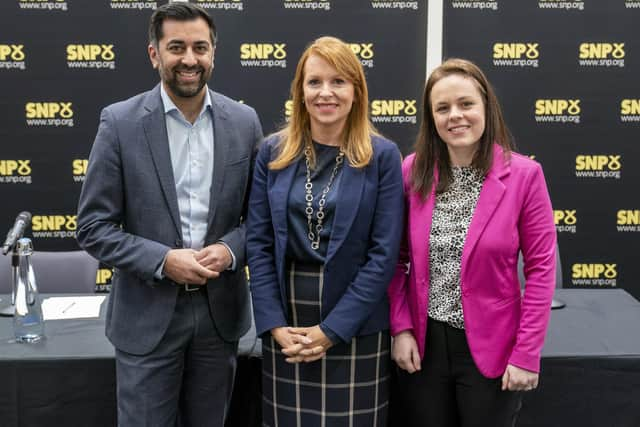Really listening is the truly radical action the new First Minister should adopt - John Sturrock
Those of us in the field of conflict resolution or, perhaps more broadly, managing differences, might ponder what we would say to an incoming First Minister if we had the opportunity. Perhaps we might put it something like this:
Dear First Minister
As you approach this new role, we acknowledge that this may seem a daunting challenge with many issues to address and in some cases to resolve. We know how easy it is to feel the need to show that you can do things briskly and provide answers quickly. However, we also know that such an approach rarely produces the best outcomes and that it is far better to gain a clear understanding of what the underlying issues, concerns and needs are and to explore the possible options before reaching decisions.
Advertisement
Hide AdAdvertisement
Hide Ad

We believe that you will need time to assess the situation and indeed hope that you will take (and be given) the opportunity to step back and take stock, to undertake the necessary groundwork. Go to the balcony, as we sometimes say. Yes, this will feel time-consuming but, paradoxically, it will be time well spent as the return on your investment will be better decisions and better outcomes – and less wasted cost and time later.
We recognise how important language can be. Framing something as an opportunity rather than a threat is just one example; focusing on what you are “for” rather than “against” might be another. Generally, accusatorial language tends to encourage resistance and rebuttal and a downward spiral of unhelpful rhetoric. We hope you can avoid that cycle of assertion and counter-assertion.
We find that separating people (whatever you may think of them) from the problem pays dividends and indeed will enable you to be appropriately robust about what concerns you, while at the same time developing working relationships with others. You don’t need to like them - and they don’t need to like you – but courtesy and respect generally cost nothing and can provide you with a solid basis for dealing with difficult situations.
You and colleagues have already spoken a lot about the need to listen. That’s not as easy to do as it is to say. With the pressures of everyday business bearing down, it takes exceptional effort to help someone else to feel that you are really listening to them and that you really care about what they say. That kind of listening has been called “profoundly radical action”. Maybe that is the kind of radicalism we now need in Scotland. To feel heard is so important and, if you do it well, you will find that people will more readily accept your decisions, even if they disagree with what you decide.


In a sense this is all about building and maintaining relationships, which need to endure during difficult as well as easier times. Reaching across political and other divides, whatever differences there may be, and searching for the common ground, of which there is always much more than we are sometimes prepared to admit. Isn’t that what the wider public hope for?
Perhaps more than almost anything else, we have learned that asking really good questions can help to resolve the most intractable of issues. Take independence, for example, to which we know you are committed. Suppose questions could be posed on themes such as: what kind of Scotland do people really want; what underlying concerns do they have; what are the aspirations and shared goals of the whole nation – where might that get you? What if, to be really provocative, the questions were framed in such a way as to exclude the words “independence” and “union” from the discussion? What more might then come out of the conversation? How could people work together to improve the dialogue?
We suggest that this kind of approach could move us away from a sterile, binary, even simplistic, debate to something more nuanced, recognising the complexity and uncertainty of 21st century life, not just in Scotland but globally. All of this assumes a degree of humility too but, if you think of the leaders many of us admire (Mandela, Gandhi, for example), they tended to combine a bold national vision with a natural personal humility.
Food for thought. Over to you!
John Sturrock is Senior Mediator and Founder, Core Solutions